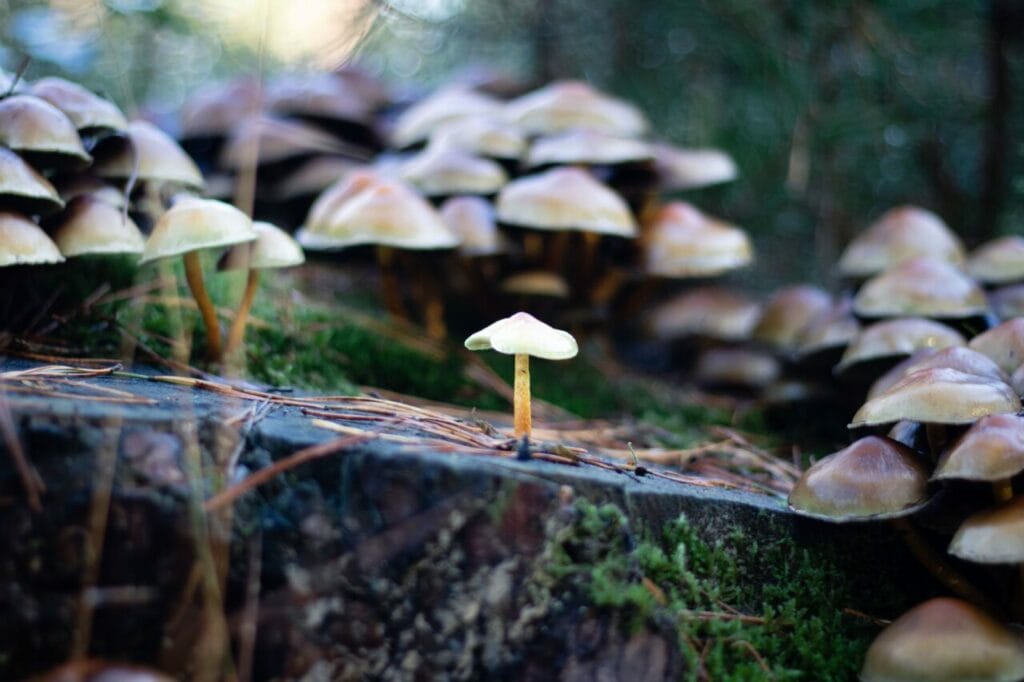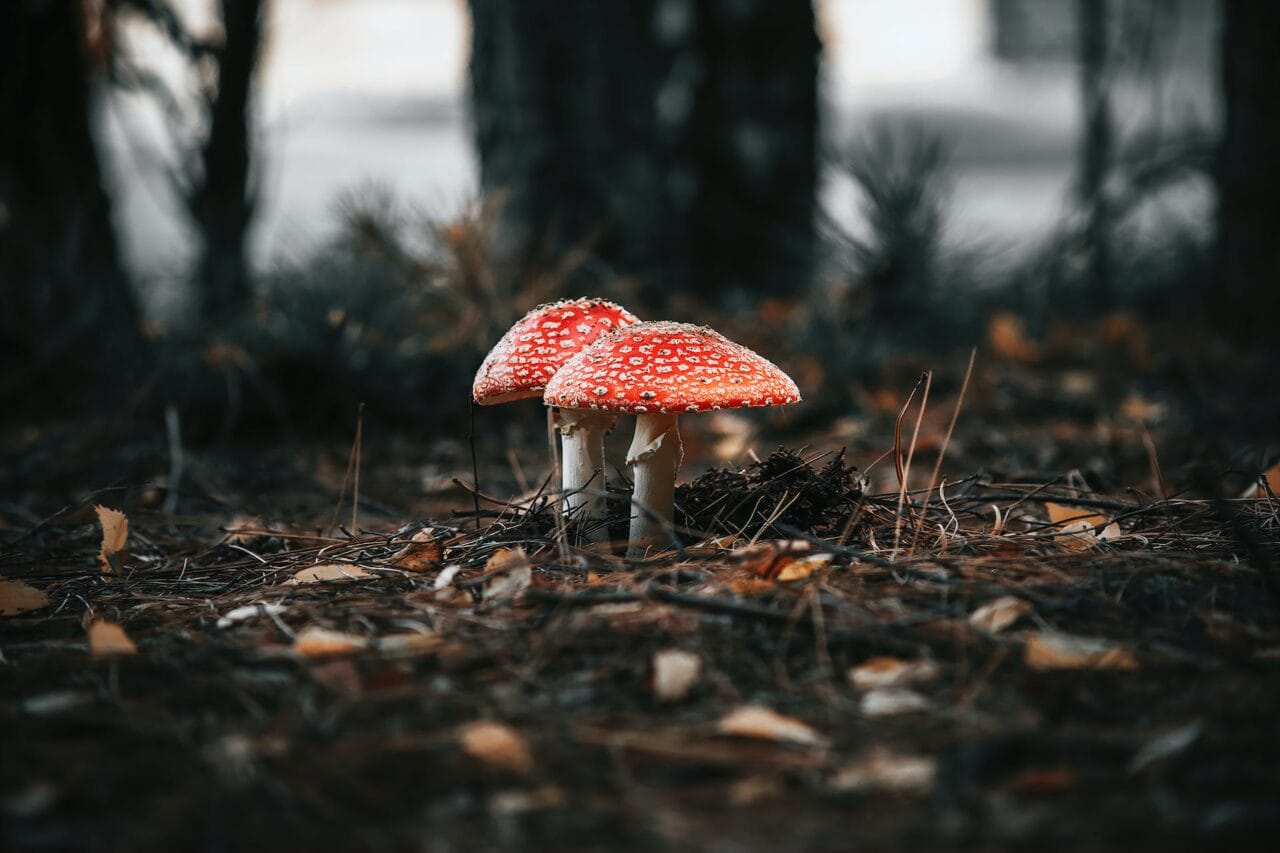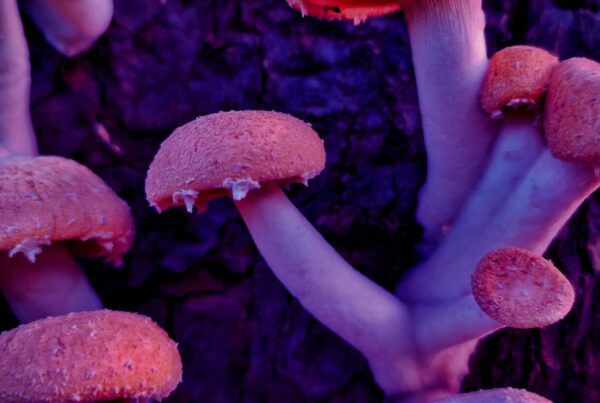Psilocybin, a substance found in certain types of mushrooms, is gaining attention due to its potential therapeutic effects for mental health conditions such as anxiety and addiction. However, access to psilocybin remains a challenge, as there are limited shroom delivery services and labs that provide these magic mushrooms, often at a high price.
In this article, we will examine the evolution of psilocybin, its current status, and the potential benefits it may offer to those seeking help.
[toc]Key Takeaways:
- Growing mushrooms requires significant effort and careful monitoring to avoid contamination during the inoculation phase.
- Psilocybin creates a psychedelic experience by interacting with various brain areas, particularly the serotonin receptors.
- Psilocybin only slightly increases the heart rate, which returns to normal soon after ingestion, and typically does not lead to any other negative effects.

Ensuring the Production of Top-Quality Magic Mushrooms
Magic mushrooms naturally thrive in diverse environments, including dung-rich pastures, leafy temperate forests, grasslands, and woodlands. Throughout history, people have visited these places to collect these fungi for medicinal purposes or for use in spiritual and religious rituals.
Conventional Approach
Today, the traditional practice of foraging for mushrooms in their natural habitats is not as common. This shift may be attributed to the advent of alternative methods such as cultivation, or the availability of magic mushrooms for purchase online.
Mushrooms found in the wild are often less potent than those grown in labs under controlled conditions. Moreover, foraging in the wild carries the risk of accidentally picking a poisonous species.
Contemporary Approach
The production of shrooms starts with a complex process that requires a high degree of precision to raise the spores to maturity.
Meticulous care and significant time expenditure is a necessity to prevent any potential contamination during the inoculation stage. When the mushrooms reach the harvesting phase, they are typically dried by labs or cultivators to extend their shelf-life. Fresh mushrooms have a lifespan of only several days, while dried variants can be preserved for numerous months or even up to a year.
Manufacturers convert dried mushrooms into a variety of forms, such as microdose capsules, edibles, tinctures, and beverages. These products are then distributed throughout Canada using magic mushroom delivery services.
Capitalizing on the Benefits of Psilocybe Cubensis or Magic Mushrooms
Researchers conduct clinical trials on mushrooms primarily to examine their impact on mental health and mood disorders, based on anecdotal reports. Numerous studies are exploring these effects, which range from microdosing with capsules to experiencing a mushroom trip with dried mushrooms or chocolate edibles.
Upon consumption, psilocybin is metabolized into psilocin, a compound that behaves similarly to serotonin, a neurotransmitter crucial for mood regulation. It interacts with various brain areas, particularly the serotonin receptors, to initiate a psychedelic journey.
Those who undergo psilocybin therapy often report significant transformations that transcend mere sensory enhancement and visual changes. These experiences can result in a substantial shift in self-perception and a profound change in personal perspective, often marked by deep insights.
Depression and Suicidal Tendencies
A study featured in the Journal of Psychopharmacology examined the effects of a psychedelic experience on individuals battling depression and suicidal thoughts. Most participants deemed their psilocybin experience as highly significant and highlighted its potential influence on their lives. The high levels of satisfaction could enhance the effectiveness of therapy, considering the crucial role of patient engagement in mental health interventions.
Safety Profile
Aside from examining psilocybin’s effects on depression and anxiety, researchers also probe the safety profile of this substance. A study in JAMA Psychiatry revealed that participants who took psilocybin experienced a mild elevation in heart rate and blood pressure two hours after consumption. However, further analysis with Holter monitoring indicated no significant increase in the risk of cardiac arrhythmias in the psilocybin group compared to the niacin group. The study also discovered
Users do not experience substantial psychological distress.





